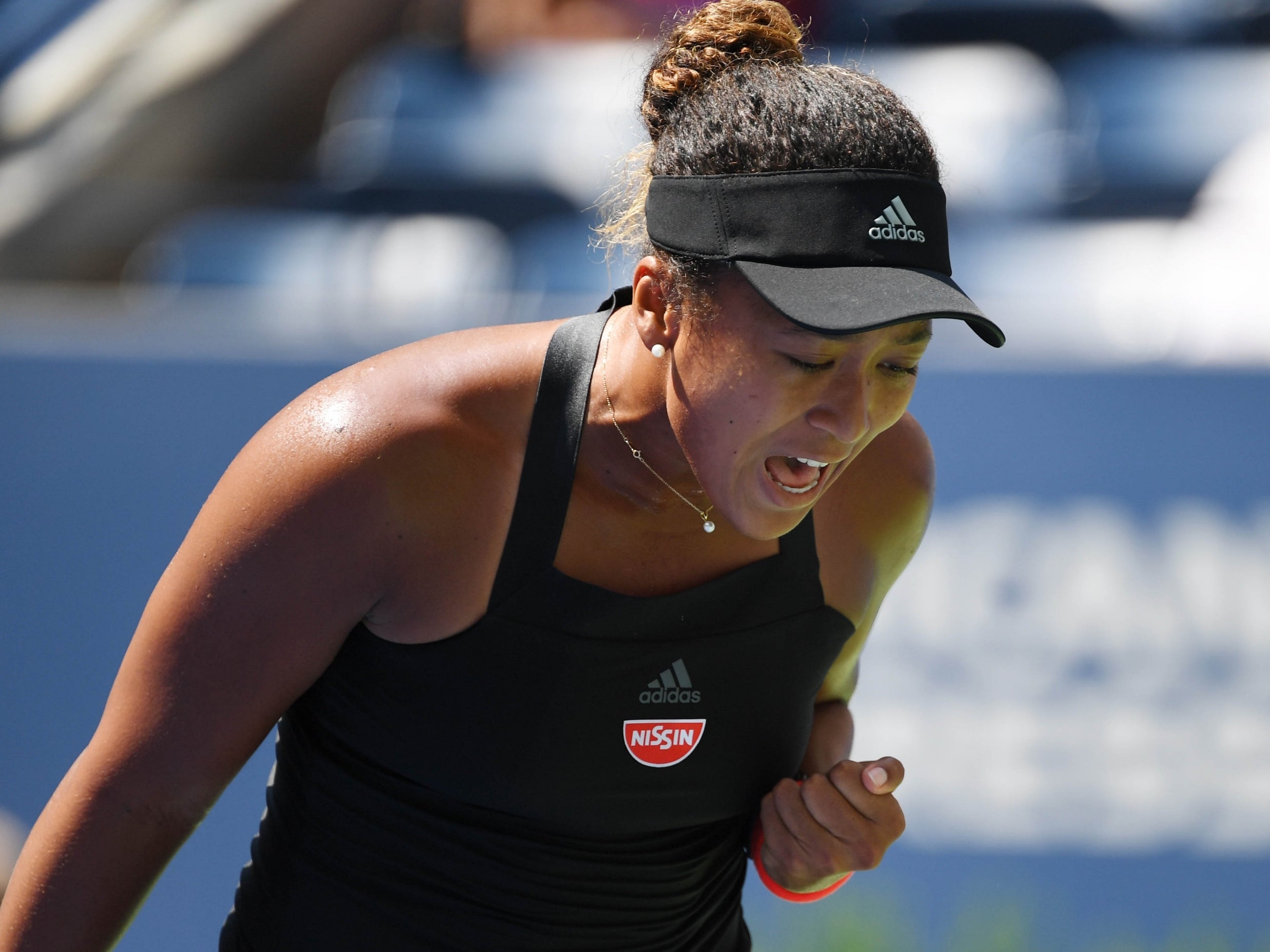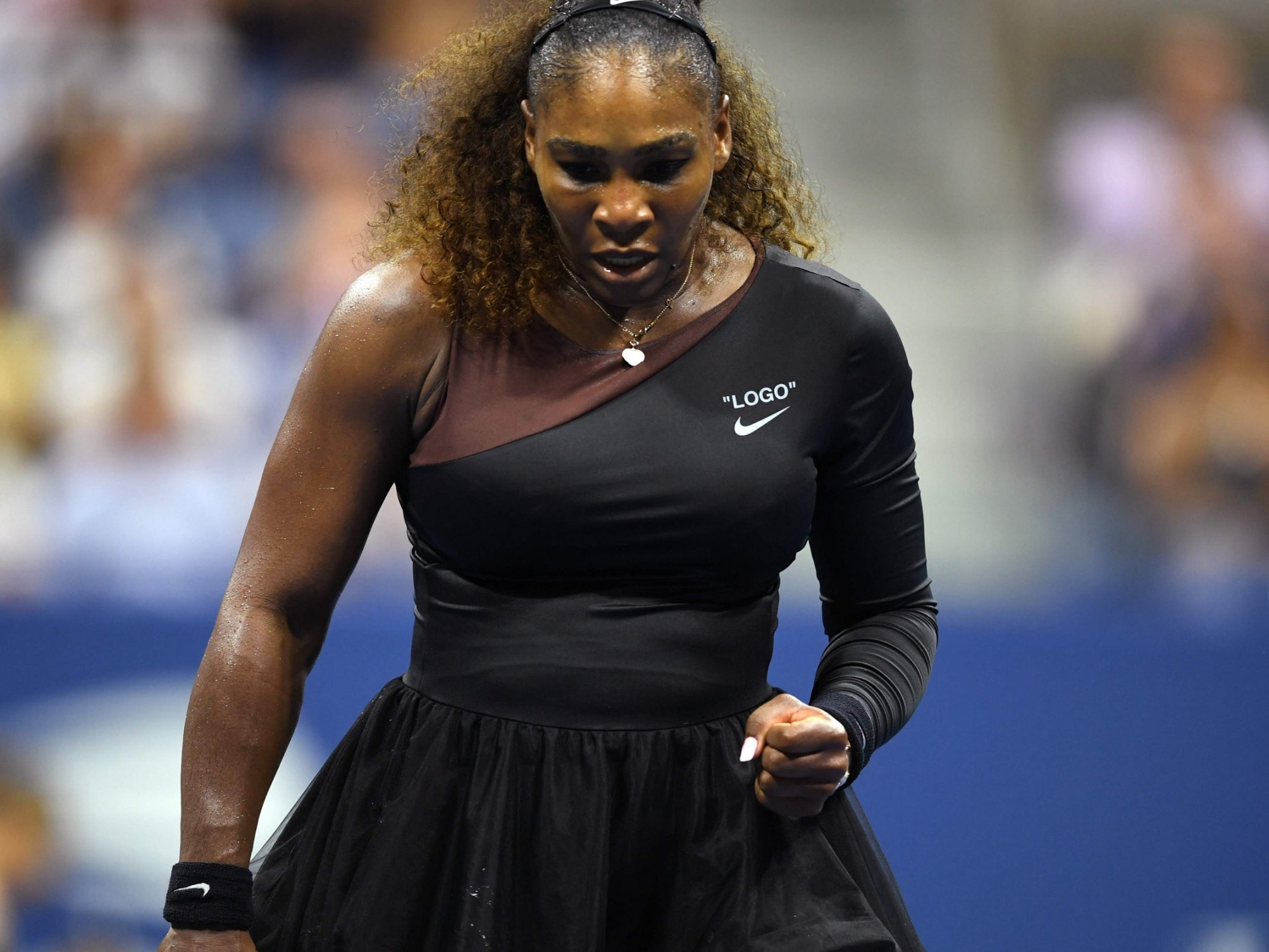US Open 2018: Serena Williams to face Naomi Osaka in Flushing Meadows final
Osaka becomes the first Japanese woman to reach a Grand Slam singles final in the Open era

Your support helps us to tell the story
From reproductive rights to climate change to Big Tech, The Independent is on the ground when the story is developing. Whether it's investigating the financials of Elon Musk's pro-Trump PAC or producing our latest documentary, 'The A Word', which shines a light on the American women fighting for reproductive rights, we know how important it is to parse out the facts from the messaging.
At such a critical moment in US history, we need reporters on the ground. Your donation allows us to keep sending journalists to speak to both sides of the story.
The Independent is trusted by Americans across the entire political spectrum. And unlike many other quality news outlets, we choose not to lock Americans out of our reporting and analysis with paywalls. We believe quality journalism should be available to everyone, paid for by those who can afford it.
Your support makes all the difference.Naomi Osaka will play in her first Grand Slam final on Saturday, but it was her 36-year-old opponent who was looking ahead to a “very, very bright future” after Thursday night’s semi-finals here at the US Open.
While 20-year-old Osaka was on her way to a convincing 6-2, 6-4 victory over Madison Keys, Serena Williams was telling reporters in the wake of her 6-2, 6-0 dismissal of Anastasija Sevastova: “This is just the beginning of my return. I'm still on the way up. There's still much more that I plan on doing.
“You don't reach your best a couple months into [your comeback]. That's kind of where I am now. I just feel like there's a lot of growth to still go in my game. That's actually the most exciting part.”
While Williams delivered arguably her best performance since returning in March after a 14-month maternity break, Osaka played with remarkable maturity, holding off a bold fightback by Keys in the second set.
Osaka, who has a Haitian father and Japanese mother but has spent most of her life in the United States, will be the first Japanese woman to play in a Grand Slam singles final.
“Even when I was a little kid, I always dreamed that I would play Serena in a final of a Grand Slam,” she said. “Just the fact that it's happening, I'm very happy about it. At the same time I feel like even though I should enjoy this moment, I should still think of it as another match. I shouldn't really think of her as my idol. I should just try to play her as an opponent.”
Williams, who lost in the Wimbledon final two months ago, is through to her ninth US Open final and is just one win away from equalling Margaret Court’s all-time record of 24 Grand Slam titles.

Both semi-finals were played with the roof over Arthur Ashe Stadium closed because of the threat of thunderstorms, which made the conditions much more comfortable than they had been in the heat and humidity of previous days.
Perhaps the most admirable aspect of Williams’ victory over Sevastova was the way in which she adapted her tactics to fend off an opponent whose wily game can trouble the very best, as Sloane Stephens, the defending champion, had discovered in the previous round.
Williams is usually most comfortable at the back of the court, but on this occasion she attacked the net at every opportunity, even playing serve-and-volley on some points. Although Sevastova capitalised on Williams’ early nerves to win the first two games, she then lost 12 of the next 13.
The 28-year-old Latvian was on the back foot throughout as Williams’ aggressive game stopped her playing the clever slices and drop shots which can be her trademark. With Sevastova struggling to retrieve balls from well behind the baseline, Williams kept stepping into the court to attack.
Sound volleying is not a quality you would normally associate with Williams – largely because she rarely chooses to come into the net – but this was a reminder that there is nothing she cannot do well on a tennis court.
“I usually just come in only to shake hands but tonight I was playing such a good player I knew that if I wanted to have a chance I had to come in,” Williams said afterwards.
“I know how to play at the net. I have great volleys, or else I wouldn't have won so many Grand Slam doubles titles. I know how to do it. It's just the fact of turning it on and actually doing it. Somehow it worked tonight. I actually did it. I've been training on it, practising it, and it came together.”
She added: “I got a little emotional out there because last year I was literally fighting for my life in the hospital. I was on my third surgery. I had one more to go still.
“To come from where I was then, in the hospital bed, not being able to move and walk and do anything, now only a year later I'm not just training but I'm actually in these finals, in two in a row. This is the beginning. I'm not there yet. I'm on the climb still.
“Even though I'm not a spring chicken, I feel I still have a very, very bright future. That is super exciting for me.”

Williams feels she has a long way to go before she gets back to where she was before her break. “I just feel like I'm definitely not there,” she said. “Even my body is different. I actually weigh less than I did before I got pregnant, but it's distributed differently now.”
She added: “I'm still waiting to get to be the Serena that I was, and I don't know if I'll ever be that physically, emotionally, mentally. But I'm on my way. I feel like I still have a ways to go. Once I get there, hopefully I'll be able to play even better.”
Osaka is one of the few players with a positive head-to-head record against Williams, even if the 20-year-old’s straight-sets victory in Miami in March in their only previous meeting came in just the American’s second comeback tournament.
That result came in the wake of Osaka’s biggest triumph yet, when she won the title in Indian Wells, but her performances here over the last fortnight have taken her to a new level.
Osaka has a big-hitting game, but her victory over Keys was based as much on her mental strength and astute choice of shots as it was on her ball-striking. Keys, who lost in last year’s final, played a poor first set, in which she kept pulling the trigger too early in rallies, but it was hard to fault the 23-year-old American in the second.
Keys hit some spectacular winners and kept creating opportunities, but Osaka saved all 13 of the American’s break points. The Japanese played nearly all the big points with a maturity beyond her years.
“Every time I had a break point, or anything like that, she came up with some unbelievable shots,” Keys said afterwards.“For a first-time semi-finalist on a big stage, it was really impressive how she held her nerve the entire time and never really had any kind of slip-up.”
Osaka was asked how the Grand Slam final that she had played against Williams in her dreams had turned out. “I don't dream to lose,” she said with a smile.
Join our commenting forum
Join thought-provoking conversations, follow other Independent readers and see their replies
Comments